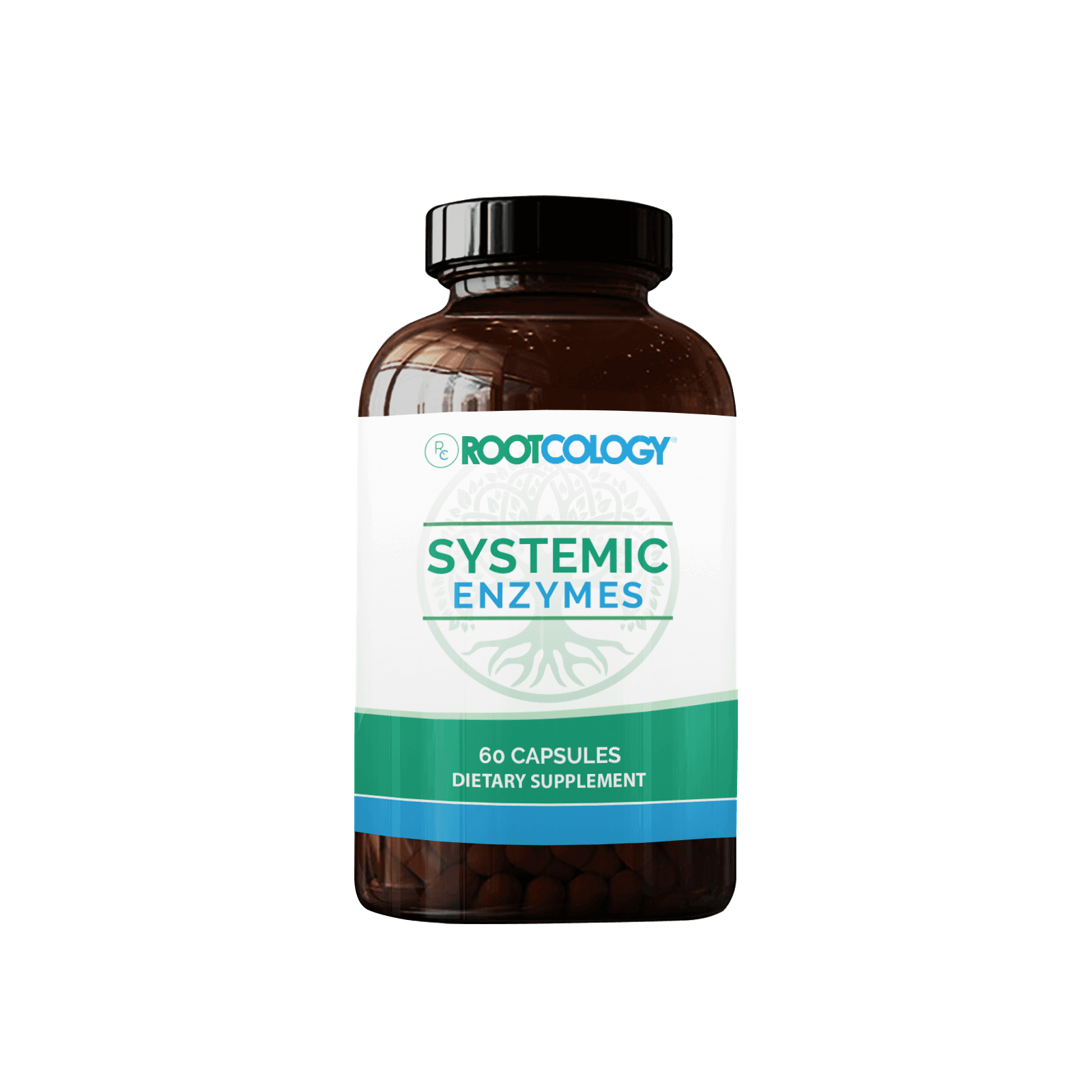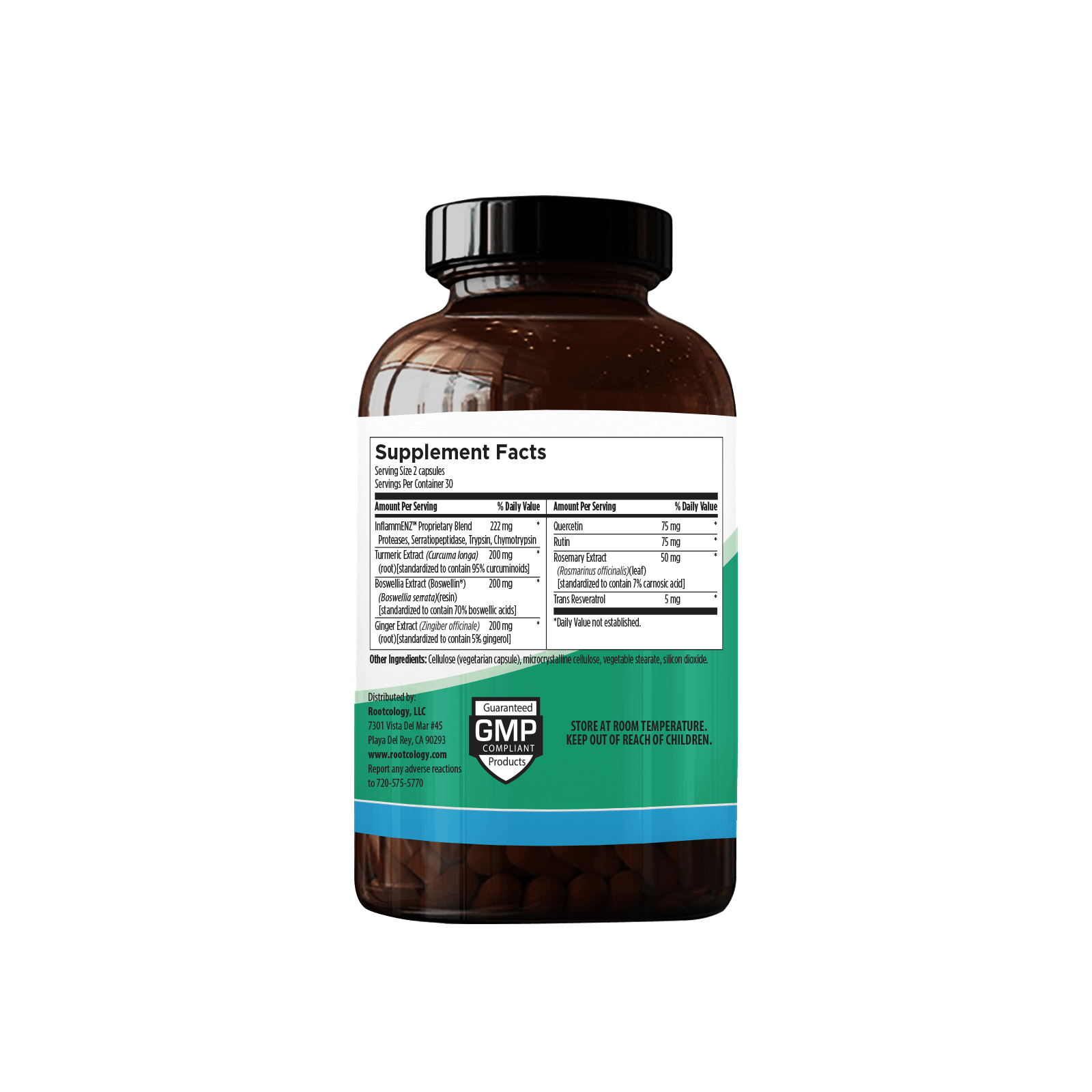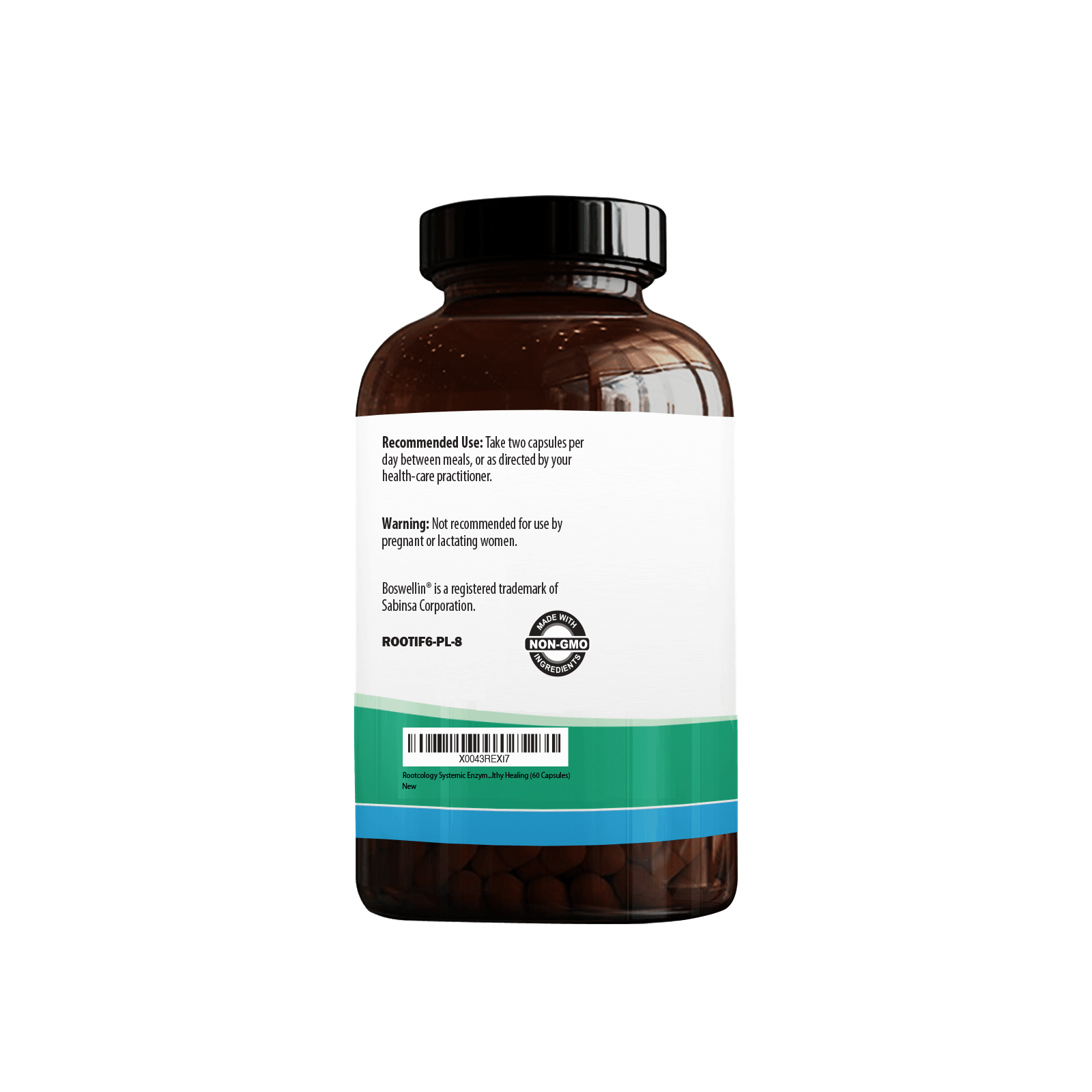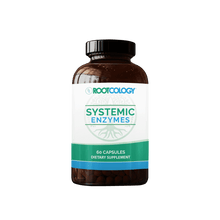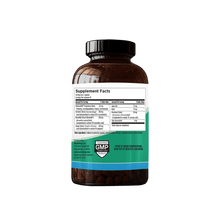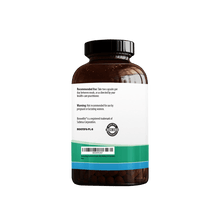What is Systemic Enzymes?
Systemic Enzymes is a blend of herbs, nutrients and specialized protein-degrading (proteolytic) enzymes, formulated to promote a healthy inflammatory response and support the body’s ability to break down specific protein structures that are produced during the natural inflammatory process.*
What are the benefits of Systemic Enzymes?
The herbs and nutrients in this Systemic Enzymes blend have been used historically to help modulate the production of inflammatory compounds in the body, and may help protect cells from excess oxidative stress. When taken on an empty stomach, Systemic Enzymes may help to modulate the inflammatory response, break down damaged tissue, and support lymph drainage. By supporting a healthy inflammatory response and antioxidants in the body, Systemic Enzymes may support the treatment of inflammatory conditions, injuries, and postoperative tissue repair. If taken with food, Systemic Enzymes provide digestive support, assisting in the breakdown of foods.*
What is the recommended dose?
The recommended dose is two capsules per day between meals, on an empty stomach (at least 90 minutes after eating, and 45 minutes before eating). You may have seen studies that use many more capsules of systemic enzymes, but please note that Rootcology’s Systemic Enzymes contain a stronger formulation than is used in most other brands and studies. Do not exceed the recommended dose of Rootcology Systemic Enzymes unless working under the guidance of an experienced practitioner.
When should I take it?
This supplement should be taken on an empty stomach (at least 90 minutes after eating and 45 minutes before eating).
Can it be taken with thyroid medications?
Systemic Enzymes should be taken at least 30 to 60 minutes away from thyroid medications. The use of systemic enzymes has been associated with reduced thyroid antibody and TSH levels. (2) Testing your thyroid hormone levels every 30-90 days to see if a medication adjustment is needed, is recommended.
How long can I take Systemic Enzymes for?
Three months to two years as part of TPO & TG Support.* Can be taken long-term for maintenance, if helpful.
Are there any side effects that I should be aware of when taking Systemic Enzymes?
May cause nausea, dizziness, headache, vertigo, belching, dry mouth, dry retching, vomiting, burning sensation, oral numbness, abdominal pain/discomfort, heartburn, diarrhea, constipation, a “chilly hot” sensation in the tongue and throat, sedation, drowsiness, dizziness, flushing, tingling of the extremities, hives, rash, bruising and flushing, flatulence, yellow and hard stools, gastritis, GERD, and/or epigastric burning.
Not to be used by those who are pregnant or breastfeeding, or those who are allergic or sensitive to pork or any of the ingredients in this supplement.
Please note that Rootcology’s Systemic Enzymes contain a stronger formulation than is used in most other brands and studies. Do not exceed the recommended dose of Rootcology Systemic Enzymes unless working under the guidance of an experienced practitioner.
Some individuals with Candida may react to these enzymes. In addition, systemic enzymes should be avoided by those currently taking leukotriene inhibitors, and those with unhealed ulcers should avoid systemic enzymes until the ulcers are healed.
DO NOT TAKE if taking the following medications: alkylating agents, amlodipine, anticoagulant/antiplatelet drugs, antidiabetic drugs, antihypertensive drugs, antitumor antibiotics, aspirin, blood thinners, choline magnesium trisalicylate, cyclosporine, cytochrome P450 substrates (1A1, 1A2, 1B1, 2C19, 2C8, 2C9, 2D6, 2E1, 3A4), diclofenac, estrogens, hepatotoxic drugs, immunosuppressants, losartan, methotrexate, midazolam, mitoxantrone, nifedipine, organic anion transporter substrates 1 and 3 (OAT1, OAT3), organic anion-transporting polypeptide substrates, p-glycoprotein substrates, phenprocoumon, pravastatin, prazosin, quetiapine, quinolone antibiotics, salsalate, sulfasalazine, tacrolimus, talinolol, tamoxifen, topoisomerase I inhibitors, and/or warfarin.
- Natural Medicines Therapeutic Research Collaboration. https://naturalmedicines.therapeuticresearch.com/. Accessed March 1, 2022.
- Kvantchakhadze R.G. Wobenzym® in the complex treatment of autoimmune thyroiditis. International Journal on Immunorehabilitation, 2002, Vol. 4, No. 1, pp. 114. [Czech abstract, Russian abstract] Research and Therapeutic Center of Rheumatology, Tbilisi, Gruzia. VIII. International Congress on Immunorehabilitation, Allergy, Immunology, and Global Net], April 21-24, 2002, Cannes, France
- Song Y-K, Yoon J-H, Woo JK, Kang J-H, Lee K-R, Oh SH, Chung S-J, Maeng H-J. Quercetin Is a Flavonoid Breast Cancer Resistance Protein Inhibitor with an Impact on the Oral Pharmacokinetics of Sulfasalazine in Rats. Pharmaceutics. 2020; 12(5):397. https://doi.org/10.3390/pharmaceutics12050397
- Kusuhara H, Furuie H, Inano A, et al. Pharmacokinetic interaction study of sulphasalazine in healthy subjects and the impact of curcumin as an in vivo inhibitor of BCRP. Br J Pharmacol. 2012;166(6):1793-1803. doi:10.1111/j.1476-5381.2012.01887.x
You May Also Like
Questions about Rootcology Products? Email info@rootcology.com and we will get back to you within 24 business hours.




